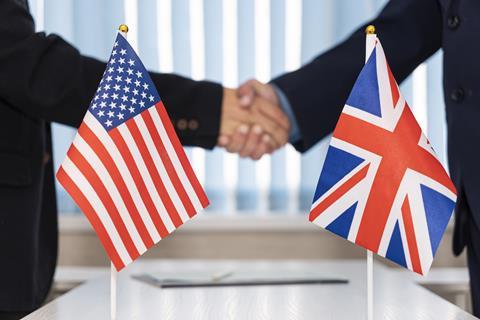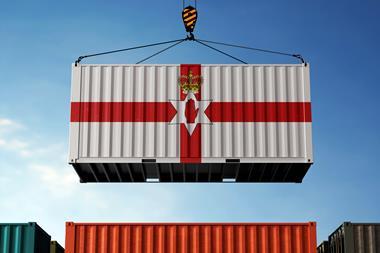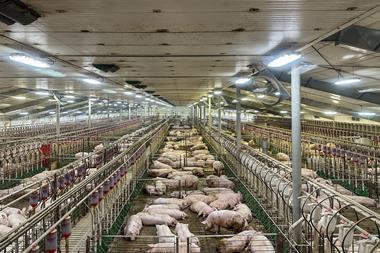
British food and drink exports to the United States jumped in the first quarter of the year as businesses scrambled to avoid the effects of Donald Trump’s tariffs.
New data from the Food and Drink Federation (FDF) showed exports to the US shot up by almost a quarter (23%) at the start of 2025 – a “significant rise as businesses braced for the impact of increased tariffs”, the trade group said.
Meanwhile, US imports in Q1 were up by nearly a tenth (8.9%), with particular growth in soybeans, corn, and almonds.
However, fresh figures from the Office for National Statistics on Thursday morning lifted the lid on the negative impact of Trump’s sweeping tariffs.
Official data showed total UK exports to the US went on to experience their largest monthly fall on record in April, a staggering £2bn drop that was “likely linked to the introduction of trade tariffs”, the ONS said.
The US president introduced a 10% minimum tariff on British exports on 2 April. And while tariffs were then paused for 90 days a week later, uncertainty around the costs of sending goods to America has discouraged businesses from exporting to the US, the FDF noted.
It added: “The US tariffs have caused some businesses to stop or reduce exports. Focus should be on reducing tariffs on products that would result in large wins for businesses that are unlikely to compete with US industry.”
Despite PM Keir Starmer’s deal with the White House in mid-May to slash some tariffs, notably on cars and steel, the levy still remains in place for most food and drink products.
Read more: Will UK producers benefit from trade deal with the US?
“The removal of 10% export tariffs that continue to apply to our sector, and a reduction on import tariffs for products that are not produced in the UK, should remain priorities for ongoing negotiations,” the FDF said in its quarterly trade snapshot.
“The UK can also use this opportunity to reduce the UK tariffs on products with the US, especially on non-sensitive commodities which are important to UK manufacturing such as almonds, cranberries, and unroasted coffee,” it noted.
On the other hand, imports of food and drink grew by 7.1% to £15.8bn, with non-EU imports increasing by 19.8% as the “disruption caused by US tariffs could be causing trade diversion towards the UK”, the report showed.
China and Canada saw particularly strong increases in export value to the UK, up 35.1% and 70.4% respectively.
The Grocer recently reported that Chinese food producers were eyeing UK markets amid the Trump tariffs disruption.
Meanwhile, UK global food exports remained stable in volume but grew in value, with total exports reaching £6bn, a 6.3% increase compared to Q1 2024.
Non-EU exports saw robust growth, outpacing exports to the EU. Ireland, the USA, and France remained the leading export markets.
Food and non-alcoholic exports to the EU continued to fall, and were down by 3.7% and 1.7% respectively, compared Q1 2024 as traders continued to struggle with Brexit red tape.



















No comments yet